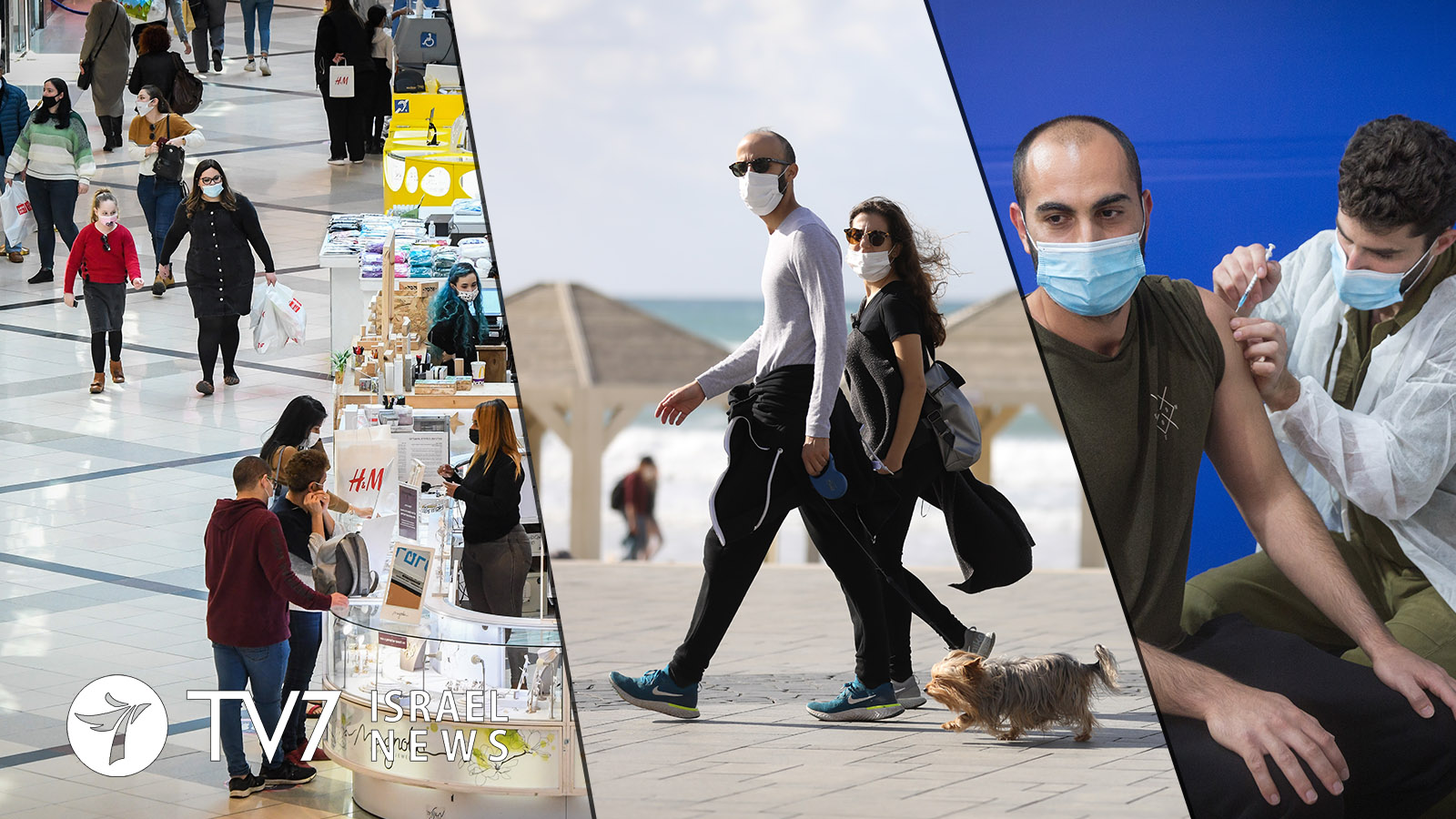“Vaccinated? Get the Green Pass and get back to life.”
Israeli Prime Minister Benjamin Netanyahu tweeted that message, as the country jump-started the economy with the staged reopening of some retail and leisure facilities.
“We are the first country in the world that is reviving itself thanks to the millions of vaccines we brought in,” he added.
Netanyahu also revealed today that he secured a “continuous supply” of vaccines “without any shortage, interruption or halts” during a telephone conversation with Pfizer Chairman and CEO Albert Bourla last night. He also said there will be further shipment of the Moderna vaccine.
As of last night at midnight, the Health Ministry reported that 4,435,177 of the nation’s 9 million residents have already received the first dose of COVID-19 vaccinations, and 3,051,107 have been administered both. The risk of illness from the coronavirus has dropped 95.8% among people who received both shots, says the Ministry.
One week after having completed the inoculation process, Israelis are issued a so-called “Green Pass.” Those who have recovered from the disease with presumed immunity are also entitled to the document.
While shops have opened their doors to all – including those who have chosen not to be vaccinated – only people in possession of the Green Pass are permitted to return to health clubs, check into hotels or attend the theater.
Pass-holders are able to certify their status by presenting a vaccination certificate or downloading a Health Ministry app linked to their medical files.
Sunday’s easing of curbs came exactly one year after Israel’s first documented coronavirus case, as part of a government plan to open the economy more widely next month – when Prime Minister Netanyahu is up for reelection.
Mask-wearing and social-distancing remain in effect. Dancing is still forbidden at banquet halls, and attendance at houses of worship are still limited to 50% of normal congregation sizes.
Elementary schoolchildren and pupils in the last two years of high school have resumed class in towns where contagion rates are under control, although middle-school students are still home-learning.
There have been three national lockdowns aimed at containing the deadly disease, and the government has pledged that there will not be a fourth.
Israel has logged 754,998 cases and 5,596 deaths from the coronavirus.
Sadly, the fatalities included the first-ever case of an unborn fetus in the 25th week of gestation at a hospital in Ashdod. The country was also shaken by the deaths of a 32-year-old mother-a-four and her unborn child on Saturday in Jerusalem. The mother was brought to the facility in critical condition, where physicians were unable to save either her or her 30-week fetus, who was not infected, after an emergency cesarean-section.
Only one-third of pregnant Israeli women have been vaccinated due to insufficient risk data during clinical trials of the Pfizer/ BioNTech vaccine administered in Israel’s rapid rollout. But after what appears to be an alarming rise of infections, the Health Ministry on 20 January began recommending expectant mothers be inoculated.
The Health Ministry warned that there is “a higher incidence of a severe onset of the disease” among expectant mothers than their infected peers of the same age.
Data shows that of the 7,415 total number of pregnant patients, 288 were diagnosed in November. That number more than quadrupled to 1,238 in December; doubling again to 2,629 last month.
The spike is thought likely due to the more aggressive British variant, which now accounts for almost all new Israeli COVID cases.
There are currently believed to be 50 pregnant women hospitalized for care of the disease, 19 of whom are reportedly considered in “serious” and 8 in “critical” condition. None of them had been vaccinated.
